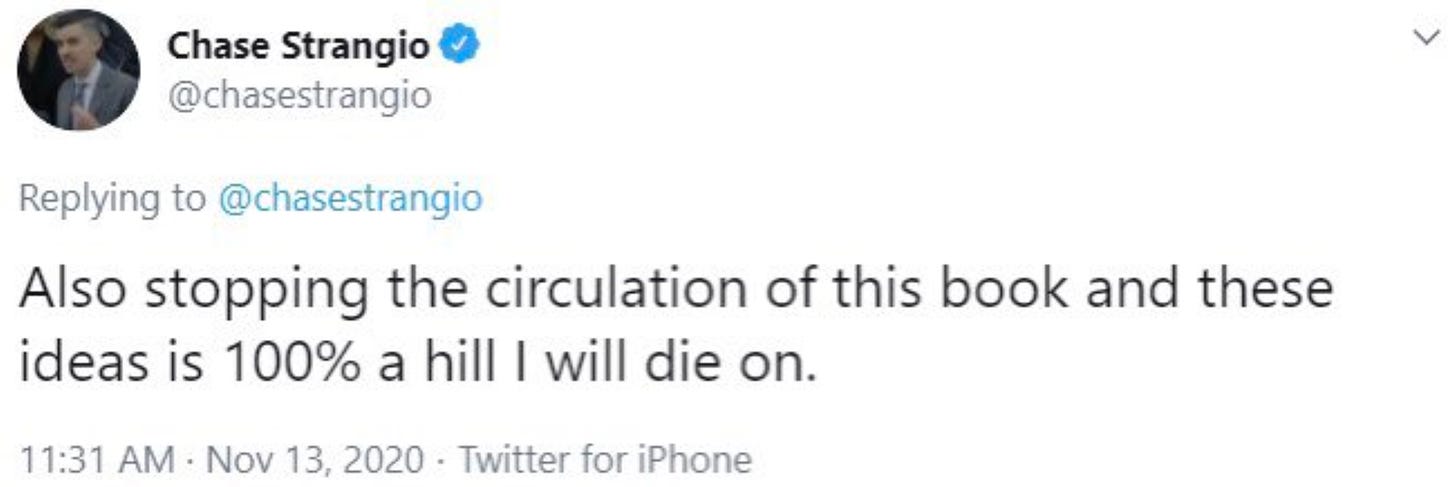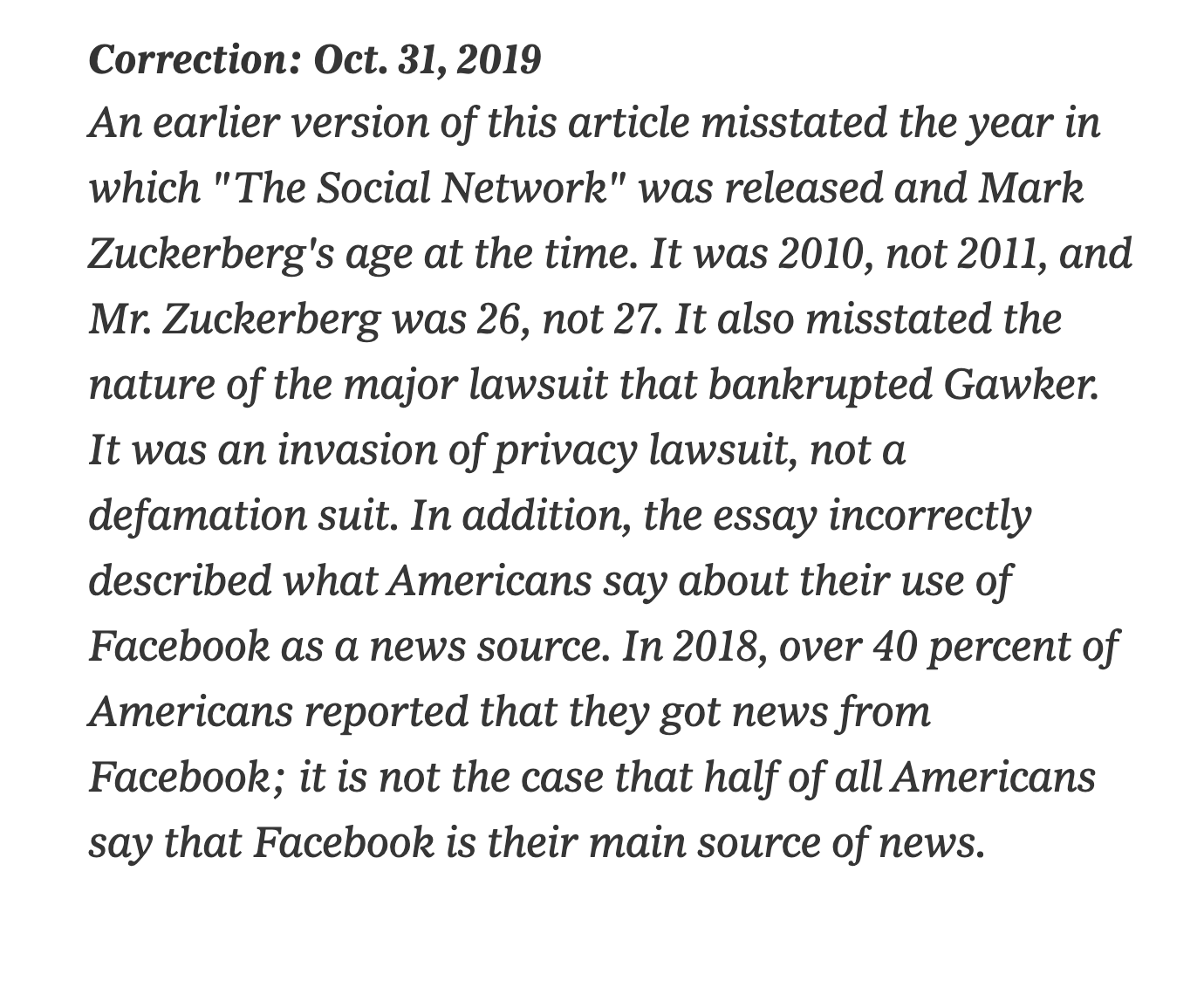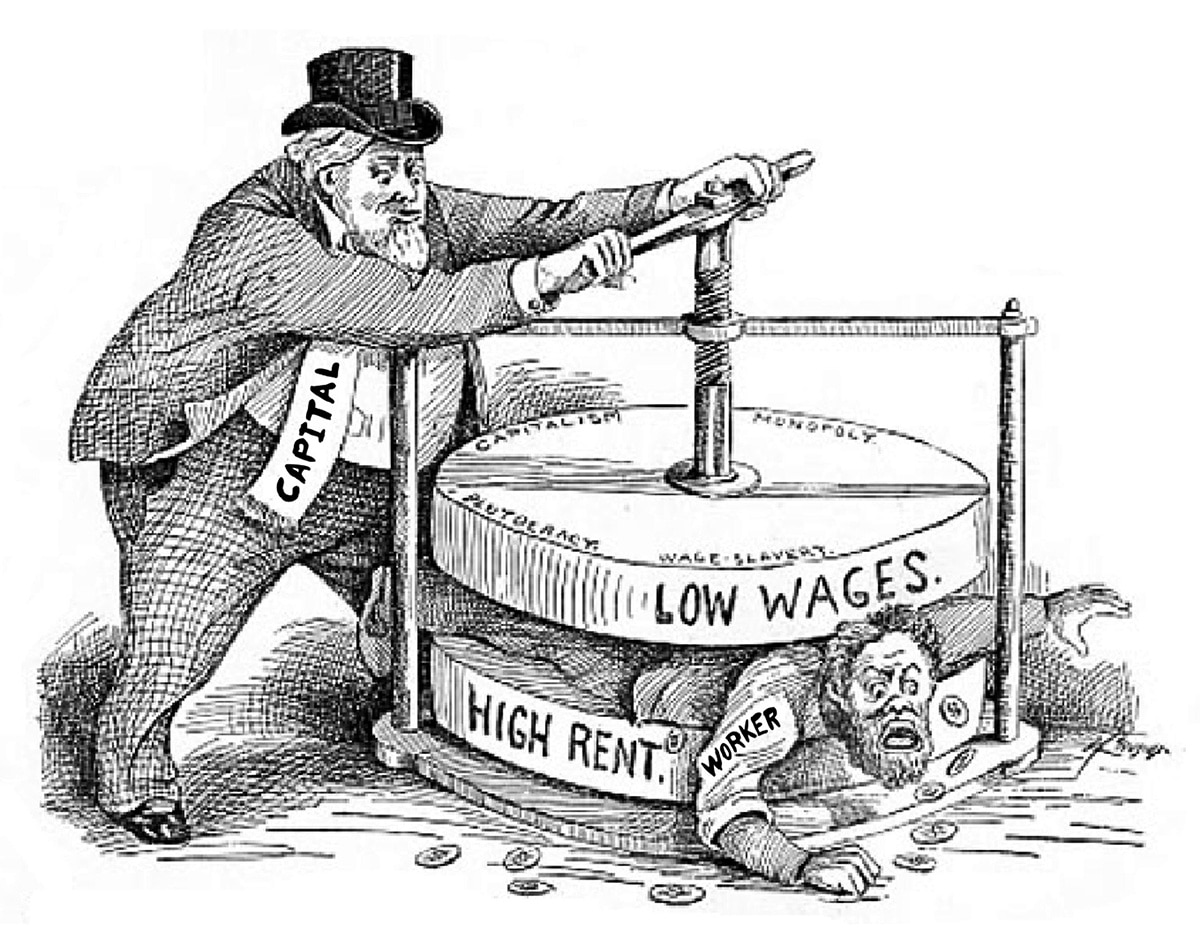
Democrats and Republicans Have One Thing in Common: Both Suck on Free Speech
by Matt Taibbi Jun 6, 2022
The Foundation for Individual Rights in Education, or FIRE, announced a major, $75 million campaign to boost free expression today. The move places the longtime agitator against campus speech codes in a role historically occupied by the American Civil Liberties Union, or ACLU. Since its founding 1920, but particularly since its famed 1976 defense of neo-Nazi marchers in Skokie, Illinois, the ACLU has been a face of American liberalism, but shifted in recent years as its once-definitional issue, free speech, is increasingly cast out of the Democratic Party mainstream.
FIRE’s expansion is great news for speech advocates, but likely wouldn’t have been necessary had attitudes toward speech not changed dramatically among liberal academics and among the ACLU’s primary donors, traditional Democrats. Moreover it’s not as simple as free speech moving now from being a blue value to a red one. What’s actually happened is far worse: tossed overboard by the blues, speech has been left without a consistent, principled champion on either side of the political aisle, as both parties have doubled or tripled down on the most idiotic forms of censorship lately, albeit in different ways.
The Democrats’ collapse on speech is especially tragic because Republicans have almost always been terrible on this issue and weirdly still are now, even when so many of their voters are primary targets of “content moderation” schemes, and “Domestic Terrorism” legislation clearly aimed at its base.
For decades, you could set your watch by the Republican embrace of censorship. There was nearly always a Republican pol in the vicinity of any campaign against unpopular speech, be it Al D’Amato and Jesse Helms taking on Andres Serrano’s “Piss Christ,” or congressmen Bob Ney and Walter Jones trying in total seriousness to ban the “French” half of what they demanded the House cafeteria call “Freedom Fries,” or even George W. Bush saying “Freedom is a two-way street” and “They shouldn’t have their feelings hurt just because some people don’t want to buy their records” after protesters drove tractors over piles of CDs by the Dixie Chicks.
This script by all rights should have flipped once campuses, the executive ranks of Internet companies, and federal agencies like Joe Biden’s CDC began pushing increasingly draconian censorship concepts to “deplatform” right-wing or conservative ideas. One would think that at least out of rank opportunism, the GOP would get religion on speech principles. No such luck.
Instead, having had years in the political wilderness to stew over the problem, the red response to new left censoriousness has often instead come via unoriginal and equally batty attempts at legislative bans. Is the best they can do?
Examples are everywhere, from a North Carolina bill demanding school workers report kids to their parents for “gender nonconformity,” to Florida’s so-called “Stop WOKE Act,” which would essentially prohibit teachers from espousing opinions in line with the state’s interpretation of “critical race theory,” to Virginia lawmakers trying to force Barnes & Noble to stop selling books like “Gender Queer” on obscenity grounds. The latter is an almost exact parallel to the furious, wrong-headed, and partially successful efforts to get Amazon to stop advertising and distributing the controversial Abigail Shrier book, Irreversible Damage.
Though there are exceptions among individual politicians, neither party has stood behind a platform of defending speech on principle, irrespective of content. We seem headed toward a zero-sum landscape, with Dems cheering when they’re in the censor’s chair and whining when a perceived antagonist like Elon Musk threatens to buy one back, while conservatives drop the hammer once they have a seat of control, for instance a state house.
The worst of all possible worlds would see speech policy added to the long list of under-publicized areas of near-total consensus between the two parties, like military spending, bank bailouts, corporate taxation, and warrantless surveillance. We’re almost there.
This is remarkable because until very recently, unwavering support of free speech was at the core of what it meant to be a Democrat. Not a leftist, or a progressive radical, but specifically a Democrat, in the broadest, most milquetoast sense of the word. Looking back, it’s breathtaking to see how quickly the blue party turned all the way around on this issue.
On November 17, 1995, at the height of liberal America’s love affair with sax-playing sixties child Bill Clinton, famed film director Rob “Meathead” Reiner released The American President. The film was meant to be Reiner’s personal tour de force, a When Harry Met Sally-style romantic comedy told as Princess Bride fairy tale (with the White House as the magic castle and Michael Douglas’s President Andrew Shepherd as the handsome prince), with a dash of Preminger-esque, A Few Good Men beltway thriller thrown in.
In the climactic scene, Reiner’s Shepherd abandons a cynical compromise on a gun control bill to defend his chosen Cinderella, the fetching environmental lobbyist Sydney Wade, played by Annette Bening. Wade had become a political liability to the virtuous blues because a photo of her burning a flag in her youth had emerged, and evil Republican Senator Bob Rumson, played by a cackling Richard Dreyfuss, was eager to take advantage.
Republicans by then were famous for attempting to chip away at the First Amendment by trying to outlaw burning the flag, with the 1984 arrest of Gregory Lee Johnson for torching the Stars and Stripes at Ronald Reagan’s convention just one of countless examples. In the film, Dreyfuss/Rumson is sure the throne will soon be his, because he had photo evidence his rival Shepherd’s love interest liked to “unwind at the end of a tough day” by “getting together with her ACLU pals and setting American flags on fire.”
The text of Shepherd’s ostensibly inspirational speech at the end of that movie is instructive to read now, since it’s so diametrically opposed to what most modern Democrats (and even specifically Rob Reiner and screenwriter Aaron Sorkin!) now believe:
SHEPHERD: For the record: Yes, I am a card-carrying member of the A.C.L.U. But the more important question is why aren’t you, Bob? … America isn’t easy. America is advanced citizenship… It’s gonna say, “You want free speech? Let’s see you acknowledge a man whose words make your blood boil, who’s standing center stage and advocating, at the top of his lungs, that which you would spend a lifetime opposing at the top of yours… Show me that, defend that, celebrate that in your classrooms. Then you can stand up and sing about the land of the free.
The movie was a callback to real history: George H.W. Bush’s infamous-but-successful 1988 debate charge that Michael Dukakis was a “card-carrying” member of the ACLU. In a disastrous decision that may have provided Reiner and Sorkin with inspiration, Dukakis in 1988 did what Shepherd would not. The Duke flinched and refused to defend his ACLU membership, complaining that Bush “suggested that I agreed with every position ever taken by the American Civil Liberties Union. That’s nonsense and he knows it.”
Dukakis aside, speech advocates throughout the eighties and early nineties were almost always Democrats, whether against bans of art by Robert Mapplethorpe or opposing the nomination to the Supreme Court of Robert Bork, whom a younger Bill Clinton decried because his “theories of individual and civil rights,” were “perhaps the most restrictive … of anyone who has been nominated to the Court.” These stories, and pop culture works like Reiner’s film, or Field of Dreams, or Milos Forman’s The People vs. Larry Flynt, always pitted urbane sophisticates defending free expression against bigoted dinosaurs like Jerry Falwell and Jesse Helms.
All of this began to change just as The American President was released. In 1995-1996, Clinton — the real Shepherd — threw his weight behind some of the first of the Internet censorship laws, including the Communications Decency Act and Child Online Protection Act, and soon found his administration on the other side of legal actions involving the ACLU. After the turn of the century, when the PATRIOT Act came up for vote early in the administration of George W. Bush, every single Democrat but one in both the Senate and the House voted for it (Wisconsin’s Russ Feingold, along with Independent Bernie Sanders and three Republicans), beginning a lengthy period of Democrats casting votes in large numbers for virtually every speech- or civil liberties-restrictive legislation in the War on Terror period.
After the double-whammy of Donald Trump’s election and the Charlottesville disaster, the ACLU itself — which had already drifted from its speech mission — began to run even harder from its notoriety for supporting the right of neo-Nazis to march in Skokie, Illinois. Though it still took on cases involving right-wing ideas, including those very Charlottesville marchers, its members increasingly felt the speech mission was at odds with its other political goals, from Juvenile Justice to Immigrants’ Rights to LGBTQ rights.
“The ACLU has 18 different issues and values in defense,” says Perrino of FIRE, which focuses exclusively on speech. “It’s necessarily going to be a little bit more difficult to determine how they prioritize their work.”
Perrino referenced an article by Michael Powell in the New York Times that quoted Ben Wizner, who runs the ACLU’s free speech project, saying, “FIRE does not have the same tensions… At the A.C.L.U., free speech is one of 12 or 15 different values.”
This is how an organization famed for defending unpopular speech could have its deputy director for transgender justice, Chase Strangio, tweet that stopping the circulation of Shrier’s Irreversible Damage is “a hill I will die on.”
It’s also how an organization famed for decades for insisting on the presumption of innocence even for very unpopular people could pronounce police guilty in Columbus Ohio in the Ma’Khia Bryant case before trial, tweeting, “ColumbusPolice murdered a 15 year old Black girl.” They also ran a commercial strongly implying that Brett Kavanaugh was guilty of sexual assault before there had been any due process of any kind, and tweeted in response to a Trump-era change to Title IX procedures that they were “inappropriately favoring the accused.” After Charlottesville, an internal ACLU memo leaked laying out how the organization was no longer sure it could stay committed to free speech. “In deciding how to use our limited resources,” the text read, “no civil liberties or civil rights value should automatically be privileged over any other.”
More to the point, the Democratic Party mainstream by the early Trump years more or less completely abandoned free speech as a core value. In place of the conviction that “America isn’t easy” and we need to fight to defend the right to say things we’d spend our lives opposing, came a new emphasis on blaming “disinformation” and “lies,” perhaps Kremlin-inspired, for having elected Trump.
The irony here is powerful, because modern American liberalism in many ways was born during the period when a braver version of the ACLU opposed Harry Truman’s red-baiting Federal Employee Loyalty Program, or the equally insidious Smith Act. But by 2017-2018, Democratic Senators like Mazie Hirono, Bob Menendez, and Mark Warner were pressuring Facebook, Twitter, and Google to crack down on “disinformation,” kick-starting the Internet censorship era.
By then, the makers of The American President were no longer interested in defending the right of people they despised to speak. Reiner on Twitter took every opportunity not only to denounce Trump as a foreign agent who needed to be muffled by more responsible actors, but also to single out Fox News, and anyone else who spread “lies and disinformation” (he used this phrase repeatedly over the years, on a variety of topics). He was also one of many who appeared panicked by Musk’s proposed purchase of Twitter, believing it would force the royal “We” to get involved in policing speech:
Meanwhile, Sorkin wrote an “Open Letter to Mark Zuckerberg” essentially announcing to the Facebook CEO that he’d made a formal break from his speech-tolerant beliefs of the eighties and nineties. He did this by way of pre-chiding the imagined response from Zuck to demands for more censorship:
Don’t say Larry Flynt. Not even Larry Flynt would say Larry Flynt. This isn’t the same as pornography, which people don’t rely upon for information.
Sorkin, like Reiner, now took the position that preventing “lies” was a more important “bedrock of democracy” than free speech. Amusingly, Sorkin’s open letter in the Times ultimately had to be appended with a lengthy editor’s note, to deal with a pile of four careless errors made in his sermon against disinformation:
Sorkin’s transformation was a common one among once-liberals in the post-Trump era, who seemingly all at once became convinced that the free exchange of ideas was simply too dangerous to be allowed in the hands of the Great Unwashed.
Over the weekend, I watched the much-discussed, much-loathed documentary, “What is a Woman?” by Matt Walsh of the Daily Wire. Without commenting on the film’s “message” (a review is coming anyway), it was striking how many of Walsh’s interviews ended with would-be progressives cutting off debate, or snapping at him with questions like, “Why are you asking?” This is a major change from the progressivism of the eighties, nineties, and early 2000s, which loved nothing more than a good debate. Hell, lefties back then practically begged for the chance to argue about anything at all, with anyone who would listen. (As a liberal from that time, I remember it seeming like a a gift when my point of view on anything was mentioned even in passing on television). Since then, a generation has clearly been taught that it’s not only possible but necessary to suppress opinions different from our own and that discussion and persuasion are dead-ends.
More even than the alleged issue at hand, this felt like the more important subtext to Walsh’s movie: the idea that a new generation of left-leaning intellectuals wants the right to dictate acceptable opinions about even very complex subjects without having to explain them. They want to be a literally unimpeachable intellectual vanguard. Free dialogue has been so impoverished that asking questions is considered a hostile act.
Meanwhile Republican politicians seem determined to punt away the political opportunity afforded them by all this. Instead of responding to a media environment where a New York Times editor can lose a job for running an editorial by a U.S. Senator by championing intellectual freedom with the same gusto the party has always brought to its support of economic liberties, we’re seeing Republican politician after Republican politician go the eye-for-an-eye route. Instead of defending principles, they’re looking for opportunities to try out bans of their own whenever they get a sandbox in which to impose them.
A close friend of mine in high school once heard someone yelling in a fight, “You fuck me, I fuck back eyeball bitch!” What the Rs are doing is the “I fuck back eyeball bitch!” strategy. Which won’t work. If people are forced to toggle between inflexible progressive speech codes and draconian legislative counterattacks, they’re just going to withdraw altogether, and all issues will just become wars to be fought, with nothing ever discussed or learned.
The sizable donations going to groups like FIRE give me hope that there are enough people out there who see the urgency of this, and want to bring support of freedom of thought and conscience back to the political mainstream, where it needs to be, somewhere. But where? Democrats seem more enthralled by censorship every day, while Republicans seem so used to losing the culture war they’ve stopped trying to fight it, reverting to old banning habits instead. Someone in politics has to help voters remember why we believed in these ideas for so long, and why that was so important.







0 Comments